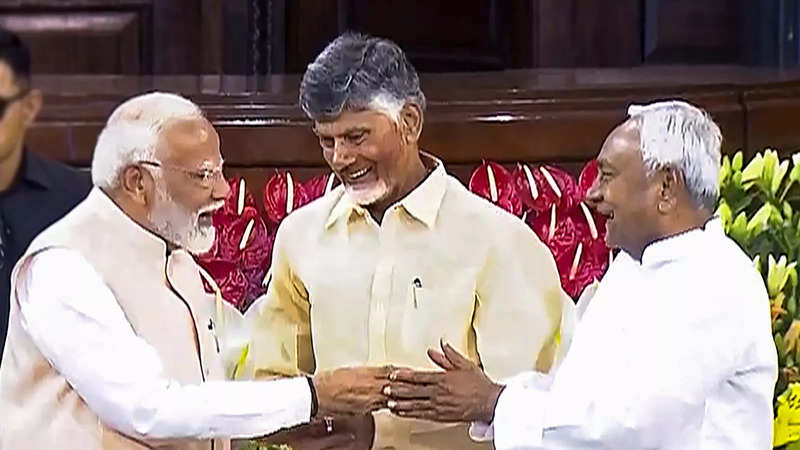Never before has a finance minister rejected populist giveaways so decisively in an election year. Never before has a finance minister sought to win the next elections not through tax breaks and freebies, but by accelerating GDP growth and taming inflation through fiscal consolidation.
Palaniappan Chidambaram has gambled on good economics proving to be good politics too. This is risky, but admirably bold. Stock markets crashed, fearing that fine print in the Finance Bill implied capital gains tax on investors coming through Mauritius and other countries with which India has a Double Taxation Avoidance Agreement.
However, finance ministry officials later clarified that capital gains through Mauritius would not be affected. If so, stock markets should rise sharply on Friday. How has Chidambaram delivered on his promise of fiscal prudence (restricting fiscal deficit to 5.2% of GDP this year and 4.8% next year), yet provided for a 29% rise in Plan spending next year? By assuming very high tax buoyancy.
Against nominal GDP growth of 13.4%, he hopes tax revenue will rise 19%, a very optimistic estimate. He will fall short on this, and will surely also fall short on the 29% rise in Plan spending. Ministries are simply not geared for such acceleration. So the planned fiscal consolidation can indeed happen. The finance minister will get much additional revenue by accelerating GDP growth from 5% this year to around 6.5% next year.
He has proposed no new taxes, only a temporary surcharge of 10% on high-income individuals and corporates for one year. That sits well with his commitment to tax stability.
What\’s in it for the aam aadmi? Or shall we say the aam voter? Chidambaram\’s implicit promise is that he will conquer the high inflation that has dogged the economy for three years. The big electoral danger earlier was a credit downgrade by rating agencies.
This would have meant an outflow of billions of dollars, causing the exchange rate to crash to maybe `60 to the dollar and inducing a big jump in prices of imported items.
That would have sent inflation soaring to 15%, and doomed the UPA to a massive defeat in the next elections. His Budget now staves off any possibility of a ratings downgrade. Dollars should f low in, not out.
That should help strengthen the rupee and put downward pressure on import prices. The consequent fall in inflation should then lead to a cut in interest rates, sparking fresh investment as well as reducing EMIs.
A budget is just one element in the broad framework needed to improve the investment climate and rejuvenate growth. Much more is needed outside the budget to cut red tape, expedite clearances and improve governance.
This Budget is low on election slogans, but aims to provide concrete outcomes in the form of faster growth and lower inflation. Success on these counts will win votes in the coming elections. It is a less showy approach than a farm loan waiver, but could be as effective.





Happen to read this today and oh yes, I also happen to look at the exchange rate 🙂